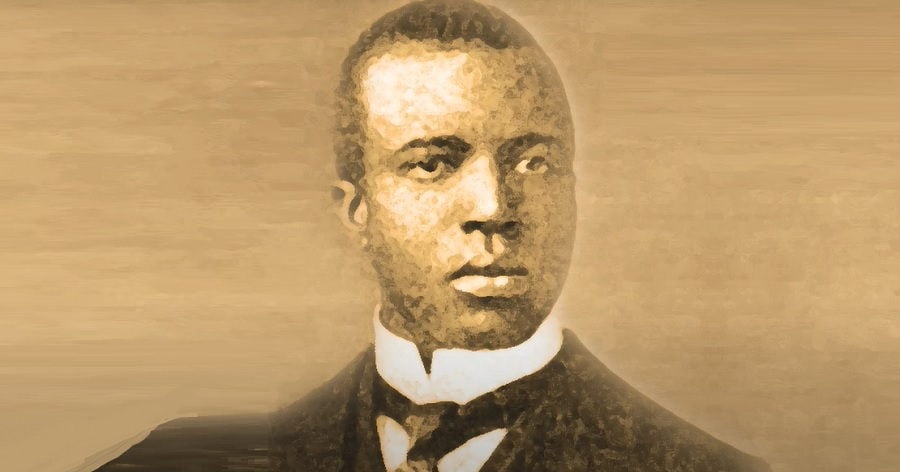

Ragtime was also a modification of the march style popularized by John Philip Sousa, with additional polyrhythms coming from African music. The composition was a hit and helped popularize the genre to the mainstream. Kentucky native Ben Harney composed the song "You've Been a Good Old Wagon But You Done Broke Down" a few months later in 1896. It was written by minstrel comedian Ernest Hogan.

The first ragtime composition to be published was " La Pas Ma La" in 1895. It has origins within African-American communities in cities such as St. The style of music was developed long before it was printed into sheet music.
Seabrook man sentenced to prison for role in U.S.Scott Joplin achieved fame for his ragtime compositions and was dubbed the "King of Ragtime" by contemporaries. Houston donates water to Jackson, MS amid its water crisis. Celebrate National Cinema Day with discounted tickets at theaters across Houston. Those who have paid off student loans could get refund under federal forgiveness plan. Second Baptist Church receives blowback over politically charged sermon. Tags arts & culture black history Black History Matters Black Wall Street classical music Daniel Roumain discrimination Eddie Robinson Greenwood District Greenwood District RestorationDeath In A Promised Land The Tulsa Race Riot Of 1921 i see u national news News 88.7 FM opera opera & musical theater Penguin Random House performing arts podcasts Sarah Page Scott Ellsworth segregation shows The Ground Breaking Tulsa Massacre University of Oklahoma violinist Most Viewed This episode is an encore of the June 3rd, 2021 original broadcast to commemorate the anniversary of the Tulsa Massacre. Acclaimed composer talks candidly about the opera industry with the 1921 Tulsa Race Riot as a backdrop. “Great Expectations.” Smithsonian, June 2010. The Scott Joplin International Ragtime Foundation. “Scott Joplin.” Texas Monthly, January 1999. New York: Oak Publications, 1966.ĭingus, Anne. They All Played Ragtime: The True Story of an American Music. New York: Oxford University Press, 1994.īlesh, Rudi, and Harriet Janis. King of Ragtime: Scott Joplin and His Era. “Julius Weiss: Scott Joplin’s First Piano Teacher,” College Music Symposium 19 (1979): 89–105.īerlin, Edward A. Published by the Texas State Historical Association.Īlbrecht, Theodore. The mural is on the south wall of the building at 311 Main Street, near the Perot Theatre.Īlbrecht, Theodore, “JOPLIN, SCOTT,” Handbook of Texas Online (), accessed May 13, 2013. Interactive exhibits explore the musical history of the region and focus specifically on Joplin’s life and achievements.Ī mural depicting Joplin’s life and accomplishments is on display in downtown Texarkana. Texarkana’s Museum of Regional History features a variety of exhibits depicting the history of northeast Texas from the time of the Caddo through the founding of Texarkana and beyond. The National Recording Preservation Board of the Library of Congress houses ragtime compositions of Scott Joplin on piano rolls, which represent how Joplin’s compositions were originally heard.Ĭover of Scott Joplin’s “Maple Leaf Rag” music score, 1911. In 1976, Joplin received a posthumous Pulitzer Prize for his unique and lasting contributions to American popular song. And his music featured prominently in the Hollywood film The Sting, which won an Academy Award for its score. In the 1970s, the world rediscovered Joplin. Discouraged and in declining health, he died in 1917. Joplin spent his final years in New York City, seeking to produce his opera, Treemonisha. In the late 1890s, Joplin settled in Sedalia, Missouri, where he studied music, performed, and began writing songs such as the “Maple Leaf Rag” and “The Entertainer.” Ragtime was described as the “one true American music” of the day, and Joplin was its king. Louis, Joplin encountered a kind of music that juxtaposed a steady, bouncing bass with a syncopated treble: “ragged time,” or “ragtime.” The music was played in saloons and brothels, and in Joplin’s hands, it became high art. Louis Globe-Democrat newspaper, June 7, 1903. By his early twenties, he left home to become an itinerant musician. Born near Linden, Joplin was the son of a former slave - and a budding musical talent. In the early 1880s, a young African American boy in Texarkana named Scott Joplin was trained in the fundamentals of classical music and opera by his German-born teacher.






 0 kommentar(er)
0 kommentar(er)
